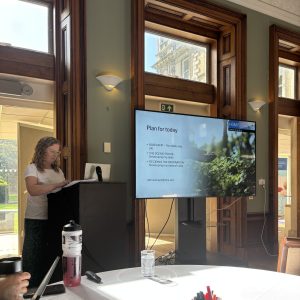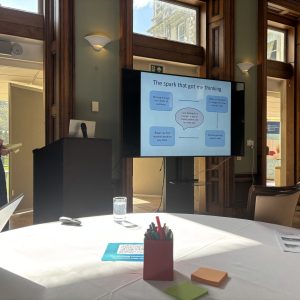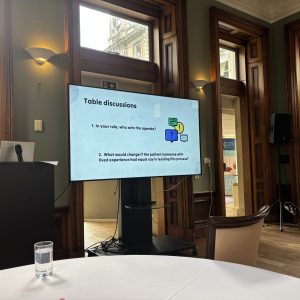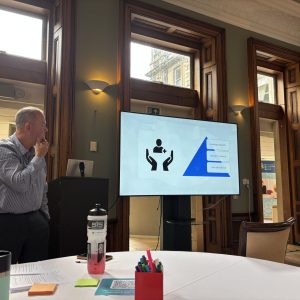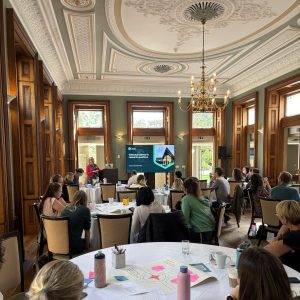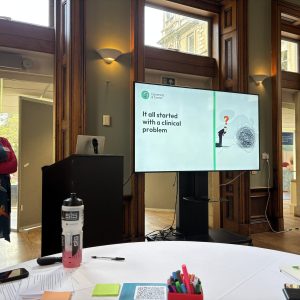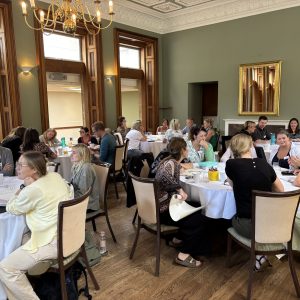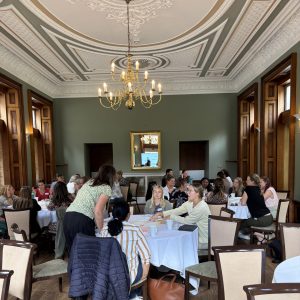In September, researchers, clinicians, and community partners came together for the South West Community Rehabilitation Research Day 2025, a PenARC-supported event that showcased the growing energy around community rehabilitation research in our region.
Hosted with the support of the Vivensa Foundation and the NIHR Community Rehabilitation Research Network (CRRN), the day brought together Allied Health Professionals (AHPs), academics, and service leaders to strengthen connections, develop ideas, and celebrate successes.
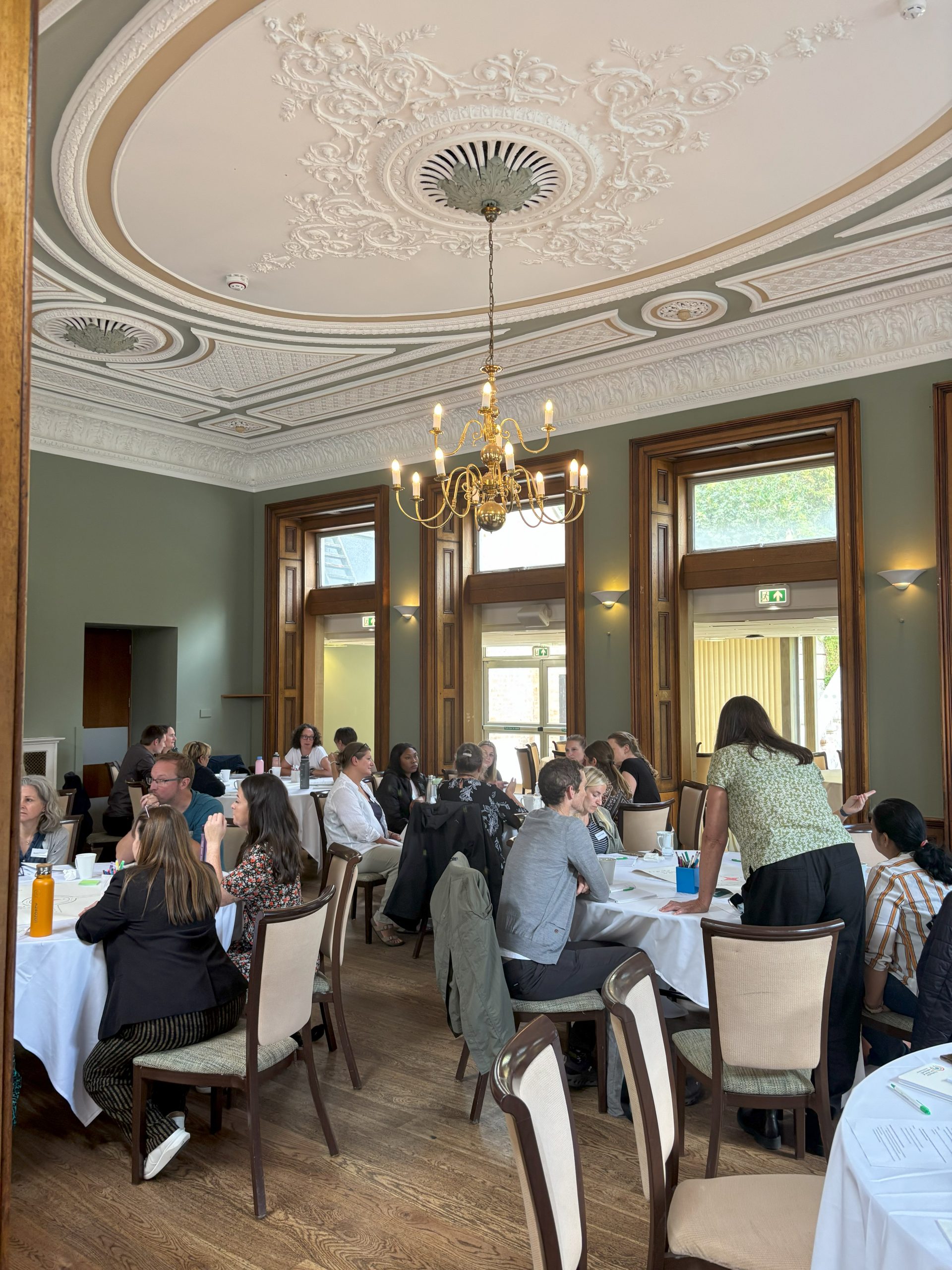
Setting the Scene
Opening the day, Dr. Abi Hall (Senior Research Fellow) highlighted why community rehabilitation matters now more than ever, particularly in the context of the NHS 10-Year Plan and its emphasis on shifting care from hospitals into communities.
This sentiment was echoed by attendees throughout the day:
“Community rehabilitation research has been under-represented and unconsidered for a long time. It is highly important for older people’s health, who make up an enormous part of care.” (Becky, Research Physiotherapist)
Dr Jackie McCrae introduced the Community Rehabilitation Research Network (CRRN), a NIHR-supported incubator established in 2024 to build research capacity among community practitioners. The CRRN is a national, multi-disciplinary network spanning a wide range of community settings, aiming to provide members with access to research opportunities, increase engagement, and strengthen the workforce’s research capacity. Dr McCrae encouraged attendees to join the network, explore its resources, and take advantage of mentoring opportunities.
Stories of Clinical Academics
A central theme of the event was the journey from clinical practice into research – and how making that leap, whilst not always easy, can transform careers, services, and patient outcomes.
- Ruth Bishop (Occupational Therapist, Cornwall Partnership NHS Foundation Trust) shared her ‘Adventures of an early career researcher’, tracing her path from rotational OT to mental health practitioner, and now researcher. Supported by PenARC’s Pre-application funding, which has so far enabled her to run a national online survey for mental health OTs and organise group discussions with people currently accessing services, Ruth is developing a NIHR Pre-doctoral application. Her advice was simple but powerful: stay curious, build partnerships, and keep patients at the centre.

- Ali Bingham (PhD student and Research Associate at the University of Exeter), described her move from frontline Physiotherapy into research, driven by a passion for patient experience and a desire to make a broader impact.
“Working in research has changed me. I see clinical problems differently. I continue to make a difference to patient lives.”
- Naomi Morley (PenARC Research Fellow) facilitated group discussions on patient participation, involvement, and engagement (PPIE), prompting attendees to reflect on whose voices set the research agenda – and how to ensure lived experience is given equal weight. The key takeaways: all PPIE should begin with reflection and open dialogue, and involvement must always be purposeful and meaningful.
- Dr Richard Collings (Head of Podiatry and Orthotics Services, TSDFT; Honorary Clinical Fellow, University of Plymouth) spoke about building an integrated clinical academic role, the value of mentorship, and the importance of belonging to supportive networks such as the Community for Allied Health Professions Research (CAHPR). While acknowledging the operational challenges that can make research involvement difficult, Richard emphasised the rewards of investing in people and creating pathways for clinicians to engage in research.
From Clinical Problems to Research Questions
After lunch – and a chance to network in the sunshine – PenARC’s Prof Vicki Goodwin led an interactive workshop on turning clinical observations into meaningful research questions. Drawing on her own experience in falls prevention and Parkinson’s, she reminded the group that impactful research often begins with overlooked real-world problems.
Participants then worked in roundtables to refine uncertainties into structured research questions. Feedback highlighted how demanding – yet rewarding – this process can be, underscoring the importance of consulting colleagues, gathering diverse perspectives, and involving patients early.
Prof Goodwin also shared candid lessons from her own clinical academic journey, from overcoming rejections to seizing unexpected opportunities. Her reflections included:
- Be inquisitive and persistent.
- Find mentors and supervisors who support your growth.
- Say yes to opportunities, even if they feel daunting.
- Above all, remember:
“It’s all about the patients.”
Workshops, Posters, and Connections
The day also created space for collaboration and peer learning. Attendees shared ideas about what would help strengthen community rehabilitation research in the South West – from a shared online resource hub, to clearer signposting of training and funding opportunities, to incorporating research more explicitly into job plans.
Funding avenues highlighted included PenARC’s PPIE Cafés, search and review clinics, and methodological workshops, as well as the Vivensa Foundation’s support for public involvement and research inclusion and conference presentations.
The poster session showcased a wide range of innovative projects, with the Poster Prize awarded to Geri Goldsmith for her scoping review into feasible cooling strategies for heat-sensitive people with Multiple Sclerosis.
“Seeing the posters about actual research going on in the Southwest was fascinating, there has been lots of food for thought!”
(Rachel, Occupational Therapist)
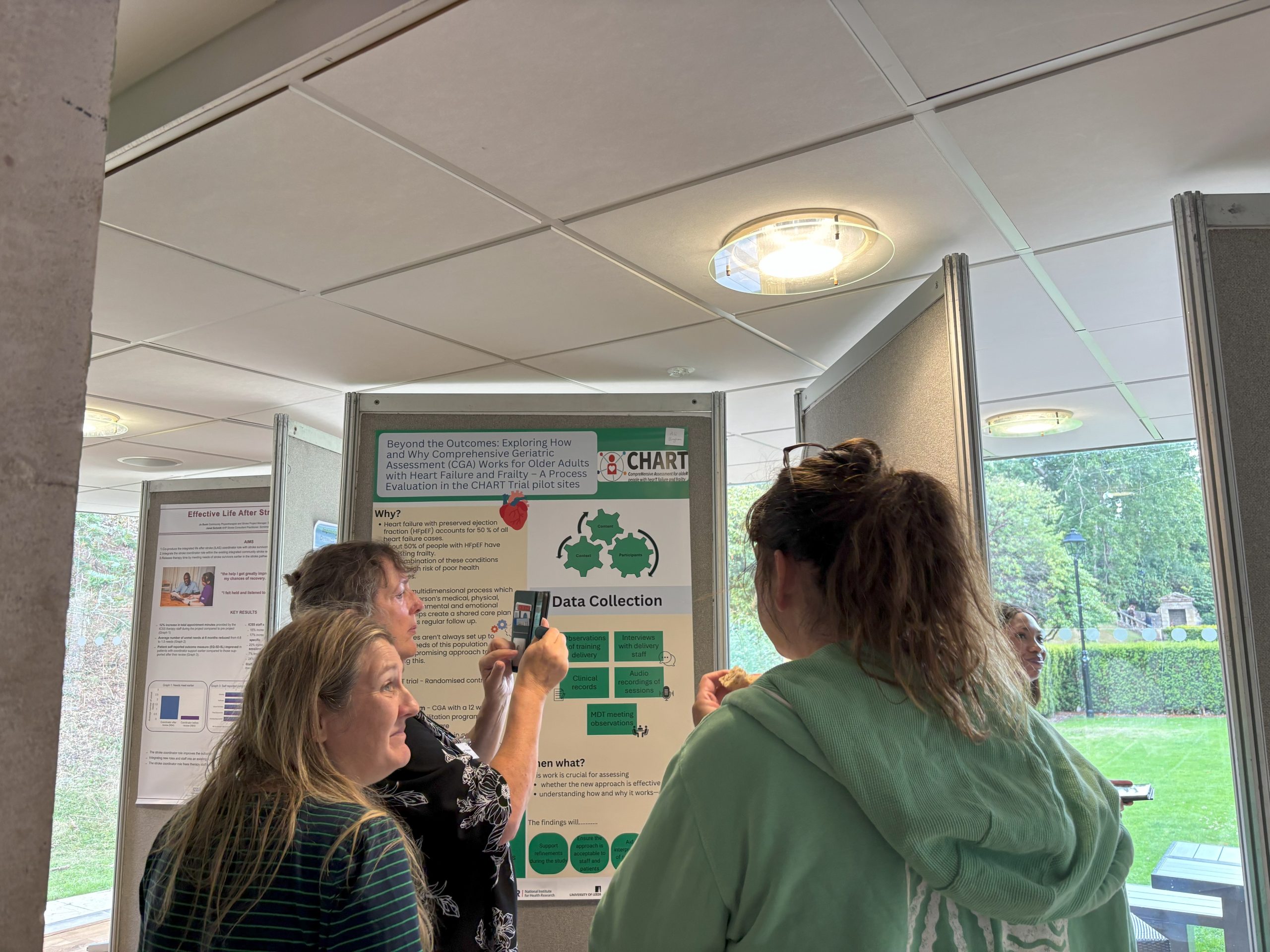
Why This Matters
Community rehabilitation is a cornerstone of effective, sustainable healthcare. The event underscored how Allied Health Professionals are driving research that is not only academically rigorous but deeply relevant to patients and services.
By fostering connections, sharing stories, and building confidence, the South West is developing a strong community rehabilitation research culture – one that aligns closely with PenARC’s mission to embed research into practice and improve outcomes for local populations.
“It was great to see a community of researchers being built through the conference. A great demonstration on what can be achieved through sharing ideas and connecting with others.”
(Joanne, Chiropractor and NIHR Insight Student)
Looking Ahead
The enthusiasm and energy from the day will continue to grow. Opportunities to get involved include:
- Joining the Community Rehabilitation Research Network (CRRN).
- Signing up to the PenARC newsletter for training and funding updates.
- Taking part in PPIE Cafés, workshops, and mentoring opportunities; check the PenARC, CRRN, and CAHPR websites for regular information and opportunities.
Community rehabilitation research in the South West is gaining momentum – and everyone has a role to play, whether as an active researcher, a user of research, or a collaborator bringing lived experience. This event was just the start for supporting people to grow community rehabilitation research across the region.
